Earthwool Roof Blanket
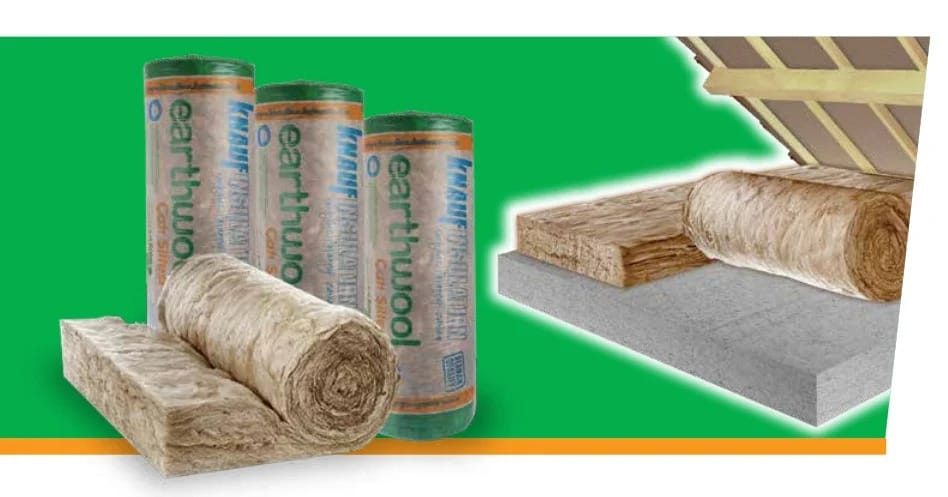
Earthwool, produced by Knauf Insulation with the patented ECOSE® technology, is a high-performance, long-lasting, environmentally friendly, new generation mineral wool based roof mat applied by laying on the floor between unused roofs.
High fire resistance; A1 is the highest fire response class. Depending on the intended use and the required performance, one or both sides are supplied with Aluminum Foil or ECOSE® Tulle.
MAIN FEATURES:
- Heat Transmission Coefficient: λ = 0.044 W / m.K
- Eco-friendly ECOSE® Technology The binder does not contain phenol, formaldehyde-derived volatile organic compounds.
- Fire Response Class: Euroclass A1 (TS EN 13501-1).
Knauf Mineral Plus – Partition Board

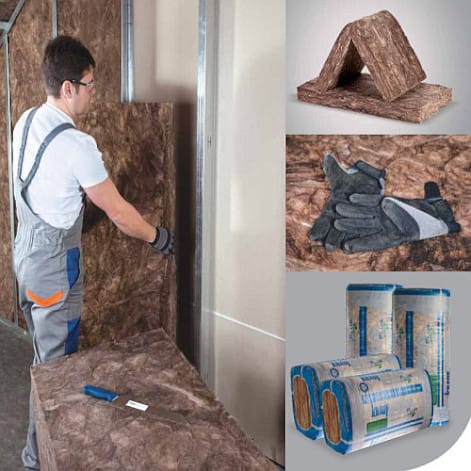
Mineral Plus, is a mineral wool based, easy to apply, flexible intermediate partition insulation board with minimum dusting. Specially designed for intermediate compartments, the product provides heat and sound insulation as well as A1 class in fire reaction classification.
Turkey’s first and only ‘Eurofins Air Comfort Gold “certification for a mineralplus insulation board which, in the interior keeps the air clean. It does not contain phenol and formaldehyde derivatives. Thanks to its flexibility, it can be applied more easily, saving labor and time. It is perfectly mounted between gypsum board and provides maximum performance by providing continuous insulation on the surface.
Knauf Mineral Plus Features:
- Low heat conduction coefficient is resistant to heat conduction. λ = 0.037 W.m / K
- Provides excellent sound insulation. .
- Fire reaction class: A1.
- It makes minimum dusting and does not itch.
- It is flexible, easy to apply.
- Compressed package, takes up less space.
XPS (Extruded Polystyrene Foamboard)
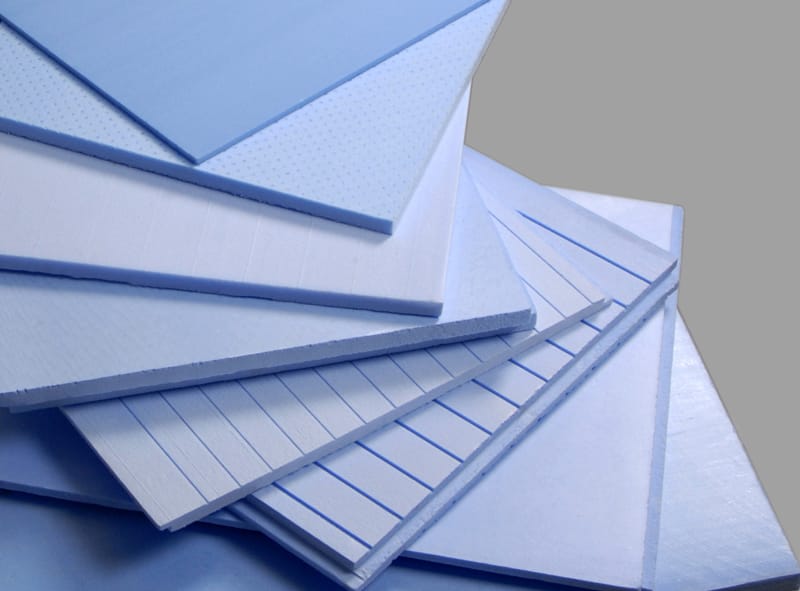

They are foam materials which have homogenous cell structure and are produced and used for thermal insulation. Polystyrene, the raw material of XPS, is extruded to the desired thickness along the line.
- Thermal insulation coefficient is in accordance with the recommended values. (Lambda = 0.030 – 0.034 w / m-K)
- Its mechanical strength is ideal (10-20-30 tons / m2)
- The density is ideal. (22-26 kg / m3)
Due to its high vapor diffusion resistance, it does not require any extra vapor cutting material. (Mu = 100-225) - E-B1 is in fire class.
- It is manufactured to comply with the degree of density required by the environment in which it will be used (roof, wall, floor).
- Thicker than 3 cm, XPS ‘edges are grooved.
- Compliance with building physics is fixed in application details.
- 3cm thick XPS; 5cm glass wool, 31cm aerated concrete, 63cm perforated brick and 264cm concrete provides equivalent insulation.
EPS (Expanded Polistiren)
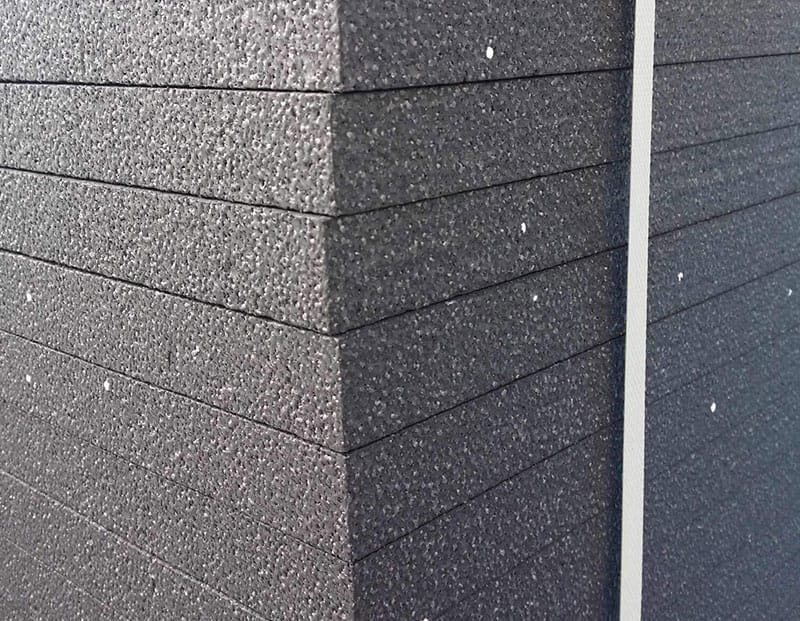

It is a thermoplastic insulation material obtained from Rigid Foam oil. The stagnant air is trapped in a large number of small closed pore cells (3-6 billion per 1 m3 EPS). These pores provide excellent thermal insulation. 98% of the material is air. It is therefore a very light material. It is generally produced in densities of 10-30 kg / m3. As one of the best thermal insulation materials available in the world, EPS is also preferred because it is more economical than other materials.
Technical Specifications
- Fire resistance: E according to EN 13501-1
- Density: 10-26 kg / m3
- Dimensional stability: ± 0.2% DS (N) 2
- Compressive strength (min.) (10% deformation): CS (10) 60
- Tensile strength perpendicular to surfaces: TR100
Dimensions:
- Length: 1000 mm
- Width: 500 mm
- Thickness: 20, 30, 40, 50, 60, 70, 80, 90, 100, 110, 120 mm
GLASSWOOL
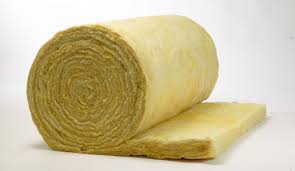
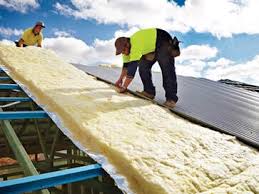
It can be produced in the form of mattresses, sheets, pipes and castings with different coating materials of different size and density according to the place and purpose of use. It provides thermal insulation, sound insulation and acoustic regulation.
Even if exposed to heat and moisture, their size does not change. It does not deteriorate over time, does not rot, does not retain mold, does not corrode and rust, and is not destroyed by insects and microorganisms. They are bendable, fire resistant glass fibers used in heat and sound insulation obtained from melted glass.
Usage area is quite a wide material. Thermal insulation on external brick sandwich walls, sound and heat insulation on partition walls, sound and heat insulation on roof tiles, prefabricated pipe insulation, air handling units, automotive and shipping industry, such as the need to use in all areas of insulation.

